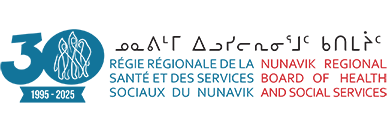The department supports communities and individuals in times of crisis by providing a team of emotional health support workers.
It also provides financial support to the northern villages to implement wellness committees in the region. A wellness committee is an organized group of persons from the community whose purpose is to identify the health and wellness needs. Members should act as a liaison between the population and community organizations.
Wellness-committee members have no statutory powers but act as advisors to the municipal council, health centres and the population in matters of health and wellness. When there are problems beyond the resources of the wellness committee or the community members, the wellness committee recommends to the municipal council that these problems be brought to the attention of the appropriate body. Funding of $25,000.00 is transferred once a year to the municipality.
Various programs are managed by the department:
Brighter Futures
Indian Residential-School Program
Midwifery Education Program and Services
If you wish to obtain funding for a project, fill out this form and return it to us. We will be pleased to review your application.
Brighter Futures
A community-based promotion and prevention program for First Nations and Inuit communities. The program functions through learning-related activities that strive to increase awareness, change attitudes, build knowledge and enhance skills. The program provides funding for the 14 Nunavik communities for various types of community projects. Funds are distributed on a per capita basis.
The program is made up of five components: mental health, child development, parenting, healthy babies and injury prevention. First Nations and Inuit communities have the flexibility to determine the program component(s) for their community-based programs, services and activities.
Indian Residential-School Program
The Indian Residential Schools Resolution Health Support Program (IRS-RHSP) provides mental-health and emotional-support services to eligible former Indian residential-school students and their families throughout all phases of the Indian Residential School Settlement Agreement, including: Common Experience Payments (CEP), Independent Assessment Process (IAP), Truth and Reconciliation Commission (TRC) and commemorative activities. Services under the Resolution Health-Support Program are safe, confidential, respectful and non-judgmental.
Midwifery Education Program and Services
There are four birthing centres offering services in Nunavik. Three of these are on the Hudson coast, located in Inukjuak, Puvirnituq and Salluit, and one on the Ungava coast located in Kuujjuaq.
The midwifery program’s core competencies used as a basis for midwife education and qualification in Nunavik are equivalent to those of the Ordre des sages-femmes du Québec (OSFQ) and the Association of Ontario Midwives (AOM) and adapted to practice in the Nunavik region. The community midwife’s scope of practice is focused on normal pregnancy, birth and postpartum. The Nunavik midwife acts as a team leader in both normal and abnormal situations and in emergency care and works in collaboration with other members of the health-care team. The scope of competency for a Nunavik midwife in these areas often extends beyond that of the OSFQ and the AOM due to the nature of practice in a remote region.
The Department of Inuit Values and Practices has been mandated to work on the regional framework for the implementation of birthing centres within our region and on the clinical plan for Kuujjuaq’s birthing centre.
